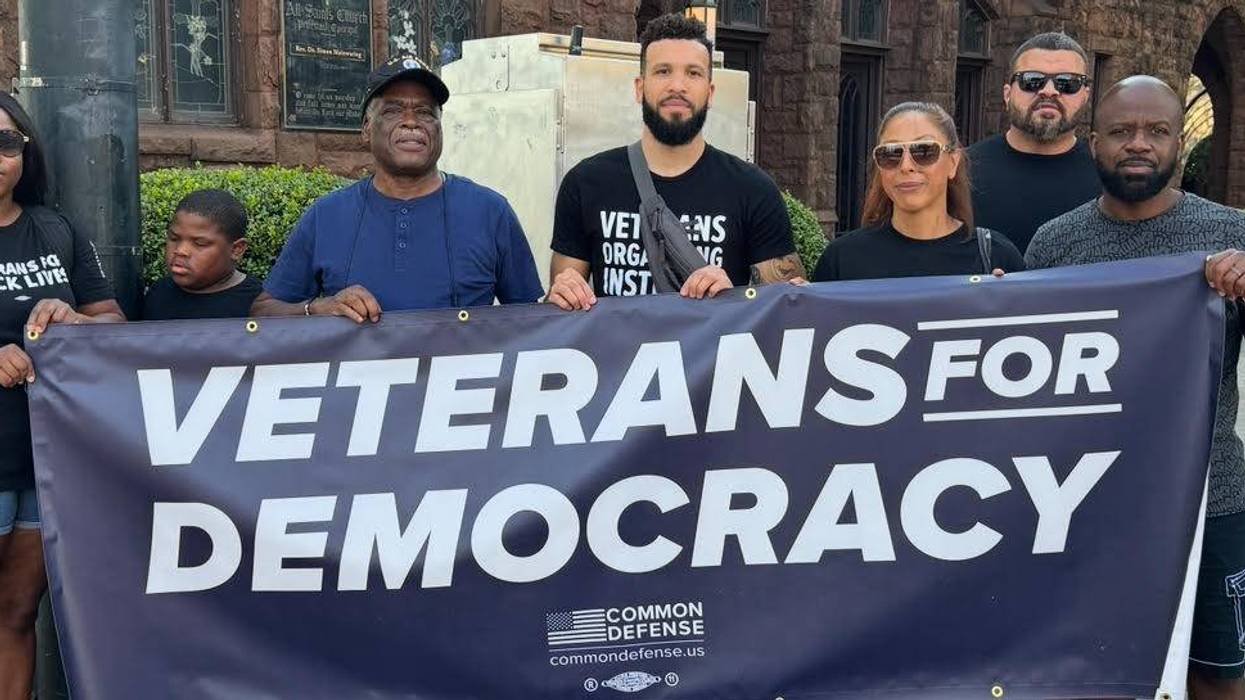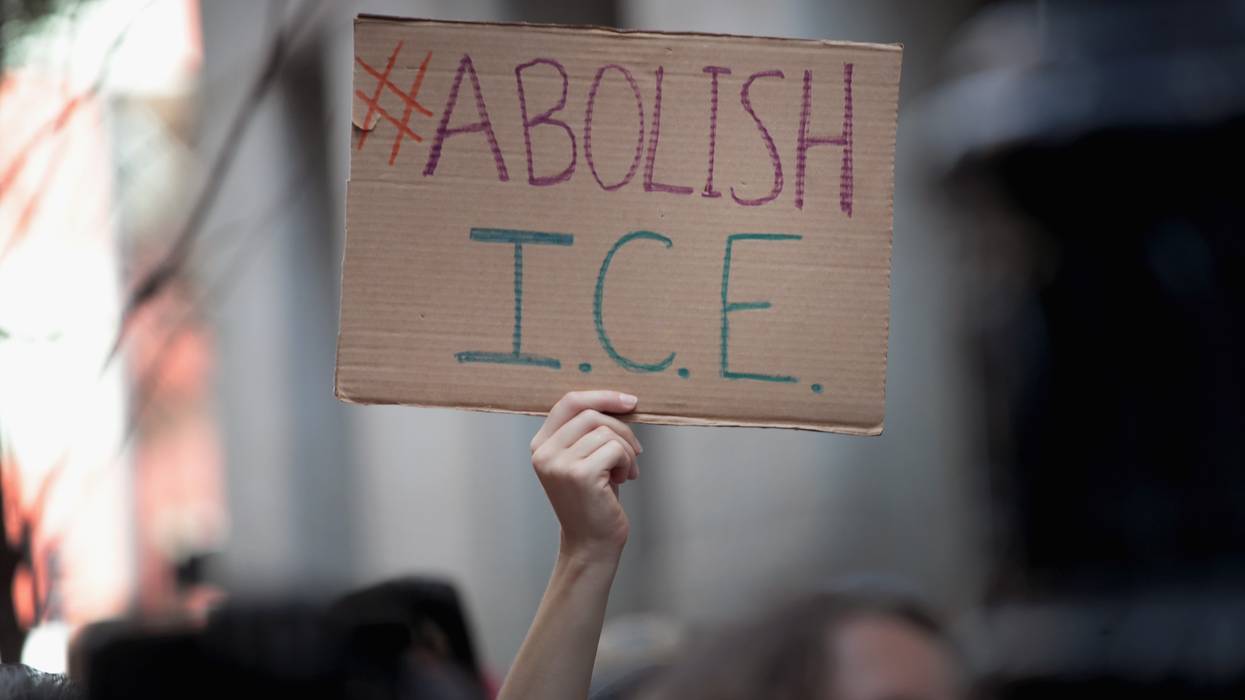SPLC filed a class-action lawsuit against ICE on behalf of five US citizens. In addition to compensation for property damages, the lawsuit sought a court order to stop ICE from conducting similar raids in the future.
Sound familiar? That occurred in 2006—20 years ago.
ICE is not broken. It is not reformable. It must be abolished.
The reality is that while ICE’s violence has become more public, what we are seeing today is not a deviation from how it has always acted. For ICE, mass surveillance, assaults, arrests, prolonged detainment, and killings of citizens and noncitizens alike are normal.
Between 2015 and 2021, ICE agents were involved in at least 59 shootings across 26 states and two US territories. At least 24 people were injured and 23 were killed.
A 2018 Los Angeles Times review of ICE activities found more than 1,500 cases of the agency wrongfully arresting and targeting US citizens for deportation and prolonged detainment. This includes Davino Watson, a US citizen, who was illegally detained by ICE in 2008 and spent 1,273 days in their custody. The agency faced no consequences for this grave injustice.
Between 1994 and 2019, the average daily population of detained immigrants grew from 7,000 to 50,000. In December 2025, the number was nearly 66,000—the highest level ever recorded. While President Donald Trump alleges that ICE is “removing some of the most violent criminals in the World from our Country,” 73% of those arrested by ICE have no criminal convictions.
ICE is not broken. It is not reformable. It must be abolished.
Abolish ICE
ICE has always relied on violent tactics, racial profiling, and increasingly invasive surveillance technology. It has faced persistent criticism from activists, nonprofits, and news outlets for its discriminatory practices. Yet, over the years, ICE has only become more aggressive.
There are many reasons for this: first, ICE agents, like other officers, have qualified immunity to prosecution. If they are involved in a potentially criminal incident, that case is reviewed by ICE’s Office of Professional Responsibility. This office lacks the authority to discipline agents. Instead, any suggestion on disciplinary measures goes back to the agent’s supervisor, who then decides whether to administer it. If they do, the ICE agent can still appeal. This triggers a lengthy process that can take years to resolve.
Second, most of their work targets undocumented immigrants and people of color—populations that are both exceedingly vulnerable to police violence and to have their suffering ignored by America’s white-dominated political institutions.
Turns out, state-sanctioned violence—not healthcare, welfare, education, or housing—has broad bipartisan support.
Third, ICE operates according to the immigration-control strategy known as “attrition through enforcement.” The goal is to compel undocumented immigrants to self-deport by making their lives increasingly more difficult. This is accomplished by limiting their access to jobs, housing, and social services; utilizing aggressive policing methods (e.g. workplace raids, home surveillance, coercion, ruses, and targeting family and friends); as well as public displays of state-sanctioned violence. This is why the Department of Homeland Security (DHS) launched an aerial and ground assault on a Chicago apartment building in November 2025. For DHS and ICE, the more violent they become, the more likely that immigrants in the US will self-deport. That violence will also deter people from entering the country in the first place. Violence and state terror are core components of ICE’s formal policing strategy.
Fourth, ICE has been strongly and consistently supported by both Democrats and Republicans. Between 2003 and 2024, ICE’s annual budget grew from $3.3 billion to $9.6 billion. As part of the One Big Beautiful Act (OBBA), Congress allocated $75 billion to ICE over four years, approximately $18.7 billion per year. Even now, despite growing public outcry against ICE, Democrats, including Senate Minority Leader Chuck Schumer (D-NY) and House Minority Leader Hakeem Jeffries (D-NY), refuse to commit to defunding the agency. Turns out, state-sanctioned violence—not healthcare, welfare, education, or housing—has broad bipartisan support.
Fifth, but perhaps most importantly, is the reason why ICE and DHS were initially created. As the Department of Justice (DOJ) noted in 2004, “The primary mission of ICE is to prevent acts of terrorism by targeting the people, money, and materials that support terrorists and criminal activities.” Under DHS, immigration control is first and foremost about counterterrorism.
This is why ICE has such broad and invasive policing powers; why Republicans have insisted for years that terrorists are entering the country via the US-Mexico border; why the Trump administration designated groups like Tren de Aragua and La Mara Salvatrucha (MS-13) as terrorist organizations; and why Homeland Security Secretary Kristi Noem and Border Czar Tom Homan have been so quick to label Renee Nicole Good a “domestic terrorist.”
It's also why simply abolishing ICE doesn’t go far enough. DHS must be abolished too.
Abolish DHS
For the Bush administration, DHS “would make Americans safer” by creating a department “whose primary mission is to protect the American homeland.” To this end, DHS “would unify authority over major federal security operations related to our borders” thereby “allowing a single government entity to manage entry into the United States. It would ensure that all aspects of border control, including the issuing of visas, are informed by a central information-sharing clearinghouse and compatible databases.”
Importantly, for DHS, the goal of defending “the American homeland” is about more than protecting US citizens, preventing destruction of property, or policing criminal offenses. It is about protecting the identity of America.
As President George W. Bush noted in his 9/11 address, “Today, our fellow citizens, our way of life, our very freedom came under attack in a series of deliberate and deadly terrorist acts.” A month later, he remarked that, “The [9/11] attack took place on American soil, but it was an attack on the heart and soul of the civilized world.” In the same speech, he announced the establishment of the Office of Homeland Security.
We must completely sever immigration services from a national security apparatus designed to police all immigrants as potential terrorists.
DHS was created to protect “our way of life” and “our freedom.” To defend “the heart and soul” of America. This sentiment is echoed by Trump’s DHS: “Protect your homeland, defend your culture.” More recently, on January 9, DHS posted on Twitter-X, “We’ll have our home again.”
From its inception, DHS has been tied to an image of the “homeland” as continuously under existential and physical threat from invaders both at our gates and already here. A key rationale for integrating immigration enforcement and control agencies within DHS was that the 9/11 hijackers entered the US legally. They were, as President Trump would describe them, “the enemy within.” This is still the rationale with which DHS and ICE currently operate. Anyone who threatens “civilizational erasure” and the loss of America’s Christian, English-speaking, and Western identity is a legitimate target of surveillance and violence.
Abolishing ICE is insufficient. We must completely sever immigration services from a national security apparatus designed to police all immigrants as potential terrorists. Abolishing DHS is necessary. This does not, however, entail dissolving all its agencies, most of which predate the department. Some, like the United States Citizenship and Immigration Services (USCIS) that processes asylum requests and issues visas, should be preserved and transferred to a department better suited to serving immigrant communities.
One might object that abolishing DHS would make America vulnerable to terrorism; however, three points are worth emphasizing: First, prior to DHS, the US already had counterterrorism measures. For instance, the CIA reported to President Bill Clinton in December 1998 about a potential terrorist attack in the US that might involve hijacking an aircraft. White House Counterterrorism Chief Richard Clark testified that the Bush national security team was not sufficiently concerned about that information.
Second, since 9/11, the majority of terrorist attacks have been thwarted by traditional law enforcement tools. In recent years, most cases of terrorism stem from domestic threats, predominantly “white supremacist and anti-government extremist individuals and groups.” Yet, DHS has been slow to acknowledge and properly tackle these threats.
Third, as an organization, DHS was always flawed. It was hastily put together using arbitrary and questionable criteria. Moreover, as former Secretary of Homeland Security Michael Chertoff acknowledged, because the entire purpose of the department is preventing terrorism, DHS officials inevitably feel pressured to exaggerate the threats facing the nation. This “security theater” creates more public fear that results in greater government spending on oftentimes expensive and wasteful preventative measures.
Even at the time of DHS’s founding, there were concerns that the US was creating an all-encompassing domestic surveillance apparatus that would eventually undermine civil liberties and endanger the public. Seth Stodder, who served in Customs and Border Protection (CBP) under President Bush and DHS under President Barack Obama, had largely dismissed such concerns. He argued that the Constitution would ultimately safeguard Americans. Now he recognizes the threat: “To suddenly see DHS become this kind of mechanism of authoritarian intimidation and incipient fascism [under the Trump administration] is disorienting, and frightening. It makes me think that maybe DHS was a bad idea.”
But arguably the Trump administration’s disregard for the Constitution and the rule of law have only made the problems of DHS and ICE more blatant. They didn’t become a mechanism of authoritarian intimidation under Trump—they always were.
Now is the time for action. For the sake of all those who have been assaulted, wrongfully detained, and killed, we must abolish ICE and DHS.


